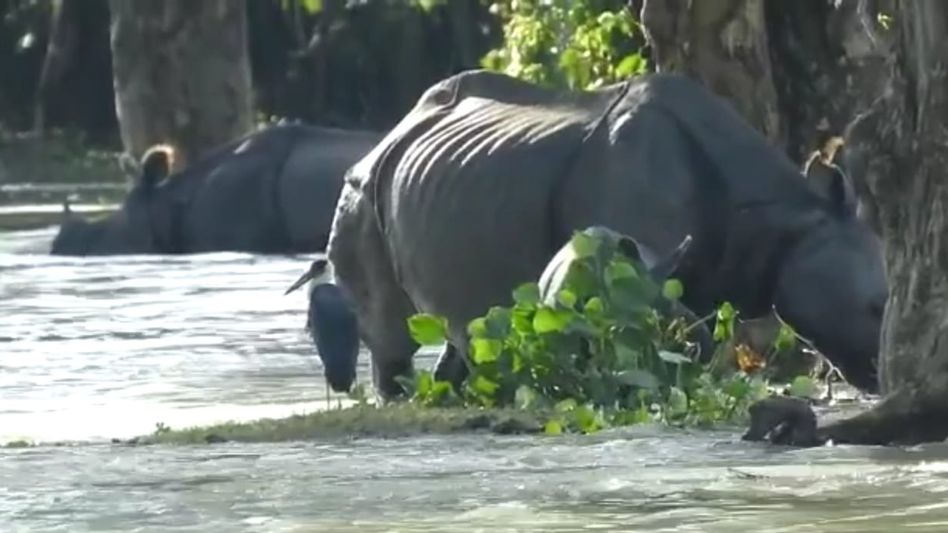Assam: 147 animals dead as flood fury continues in Kaziranga National Park
 Kaziranga Floods
Kaziranga FloodsThe Kaziranga National park in Assam is badly affected with 50% area submerged and according to Forest department report, a total of 147 animals have died in this flood season and 170 animals have been rescued. 81 animals have died from drowning, 20 have died from vehicle hits and 17 died under treatment.
In a recent incident, a Rhino who strayed out of the park in the highway has moved back now into the park. Such cases of displacement have been common ever since the onset of floods.
In Assam itself, so far 3,27,442 big animals, 1,51,431 small animals and 2,76,697 poultry are also affected. As such, the risk of the animals to suffer from the flood has increased manifold.
The ravaging annual floods have claimed a total of 108 lives so far in Assam. A total of 21 districts are reeling under floodwaters, according to the Assam State Disaster Management Authority.
Also read: Assam flood death toll stands at 109, 20 districts still affected
The paradox of floods: Kaziranga
Amid the concerns of floods, there is another paradox. The floods rejuvenate the National Park every year by depositing alluvial soil and other sediments. This is considered to be a healthy wipeout, which maintains the ecology of the park. However, since time immemorial when that happens the animals had the facility to shift to high lands. With the increased human population in the peripheries, this organic tradition now sees increasing man-animal conflicts. On this aspect, Ramesh Gogoi, Kaziranga Park DCF said, “Basically, they reach the national highway stretch for highland and that has led to few mishaps. So far, 12 deers have died this year due to that. Some animals have even entered villages and few tigers have taken refuge their”.
Thus, the issue is not whether floods are useful or not. In the modern-day setting, floodwaters are not limited to monsoons but an uneven flow of dams discharge fostered by increasing the volatile Brahmaputra who banks are now getting encroached by human settlements. On the other hand, the animals of Kaziranga have lost their traditional high land place to human settlements which have also created problems. Overall, a holistic policy involving all the stakeholders is key.
Readers like you make Inside Northeast’s work possible.
To support our brand of fearless and investigative journalism, support us HERE.
Download:
The Inside Northeast app HERE for News, Views, and Reviews from Northeast India.
Do keep following us for news on-the-go. We deliver the Northeast.
Copyright©2025 Living Media India Limited. For reprint rights: Syndications Today









